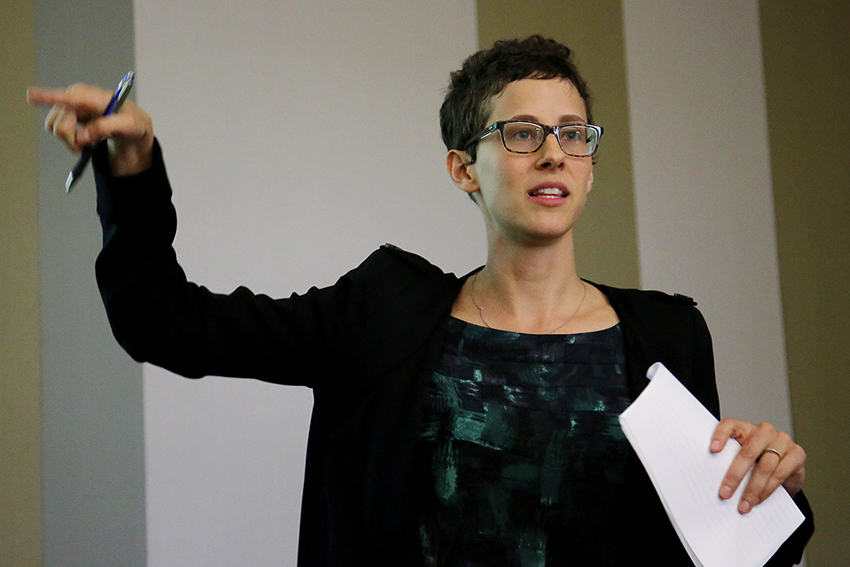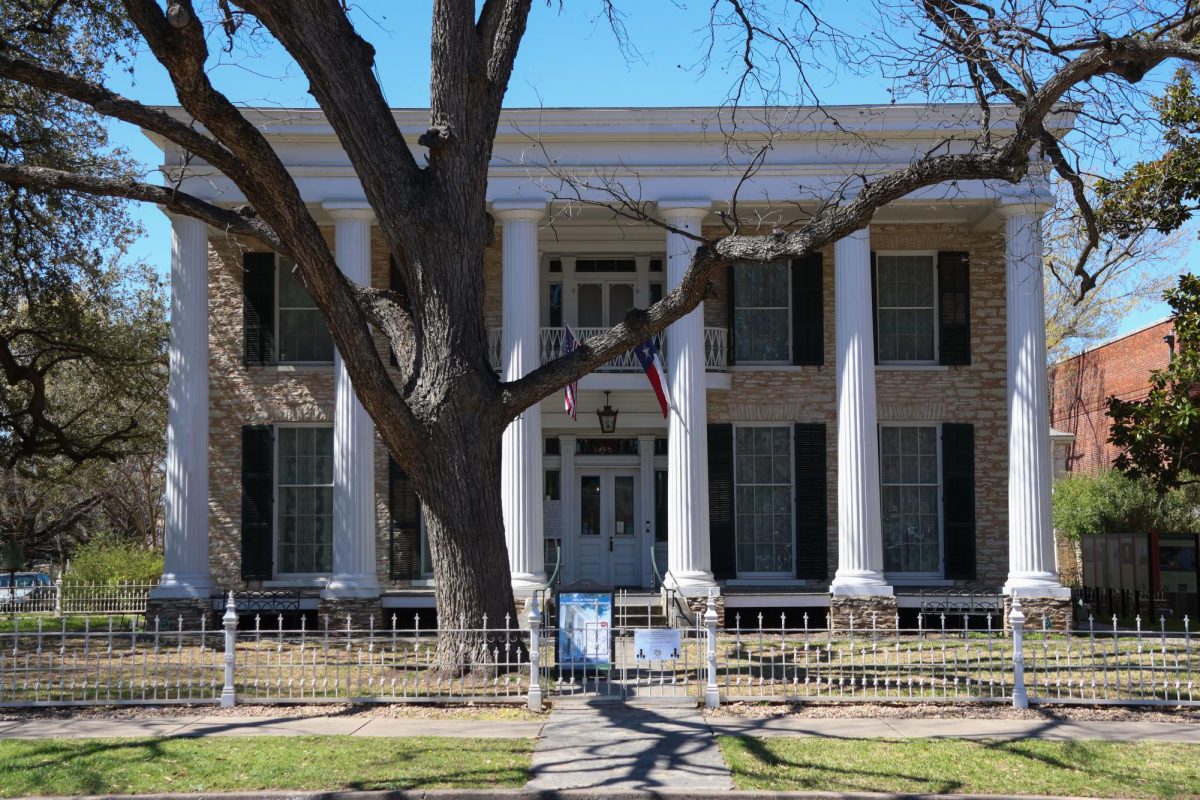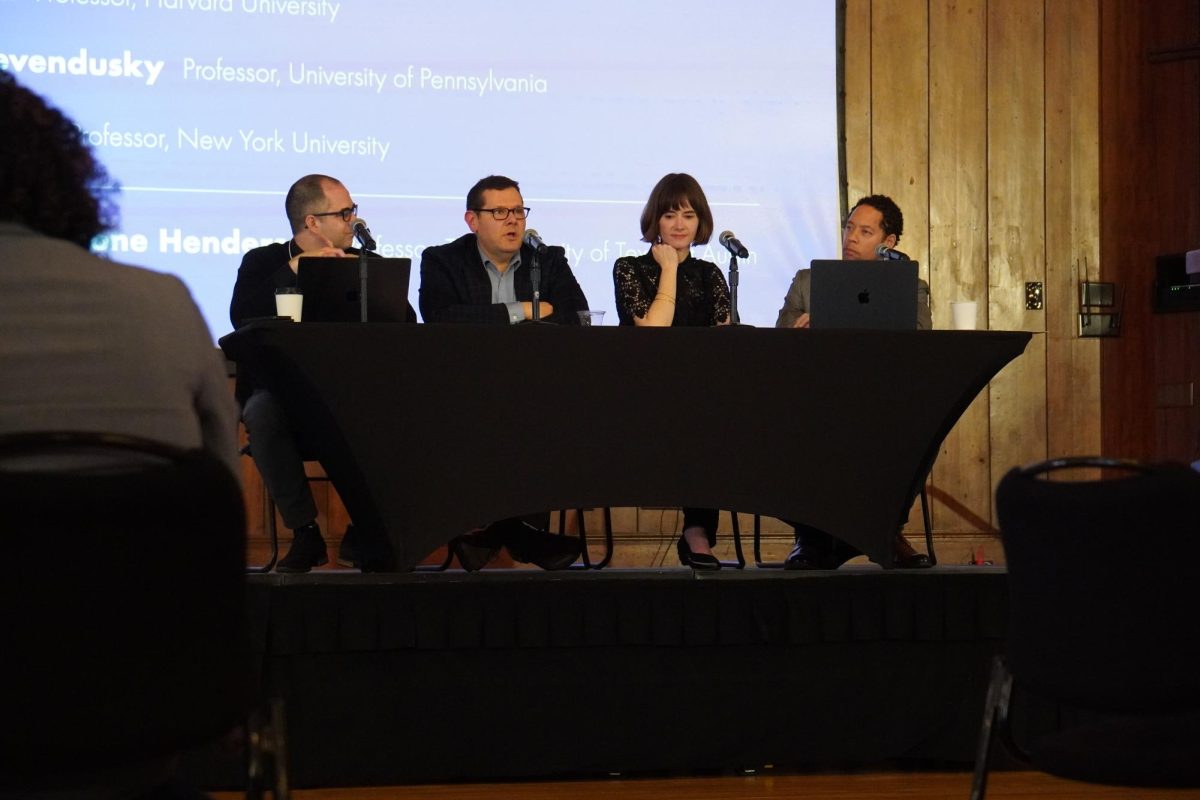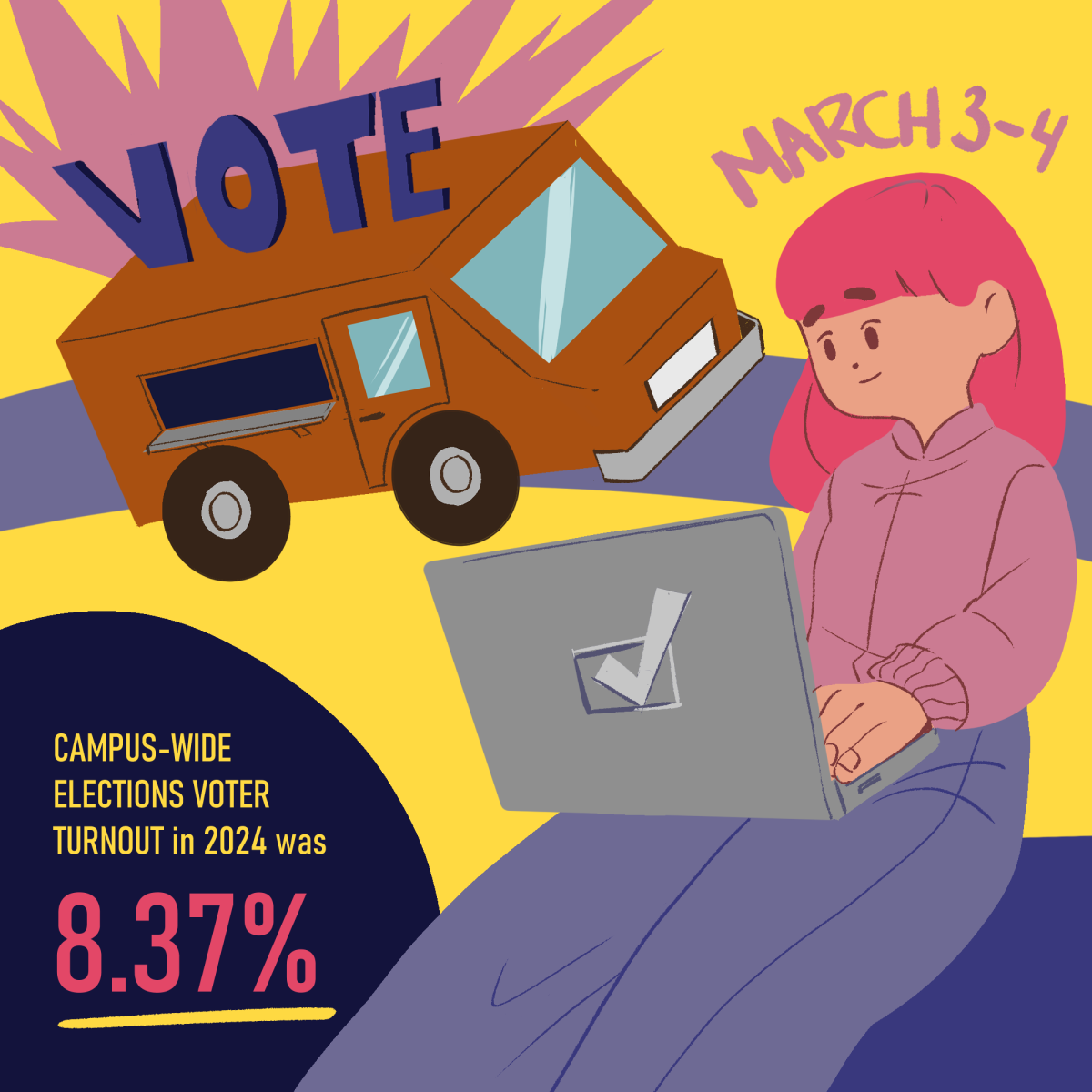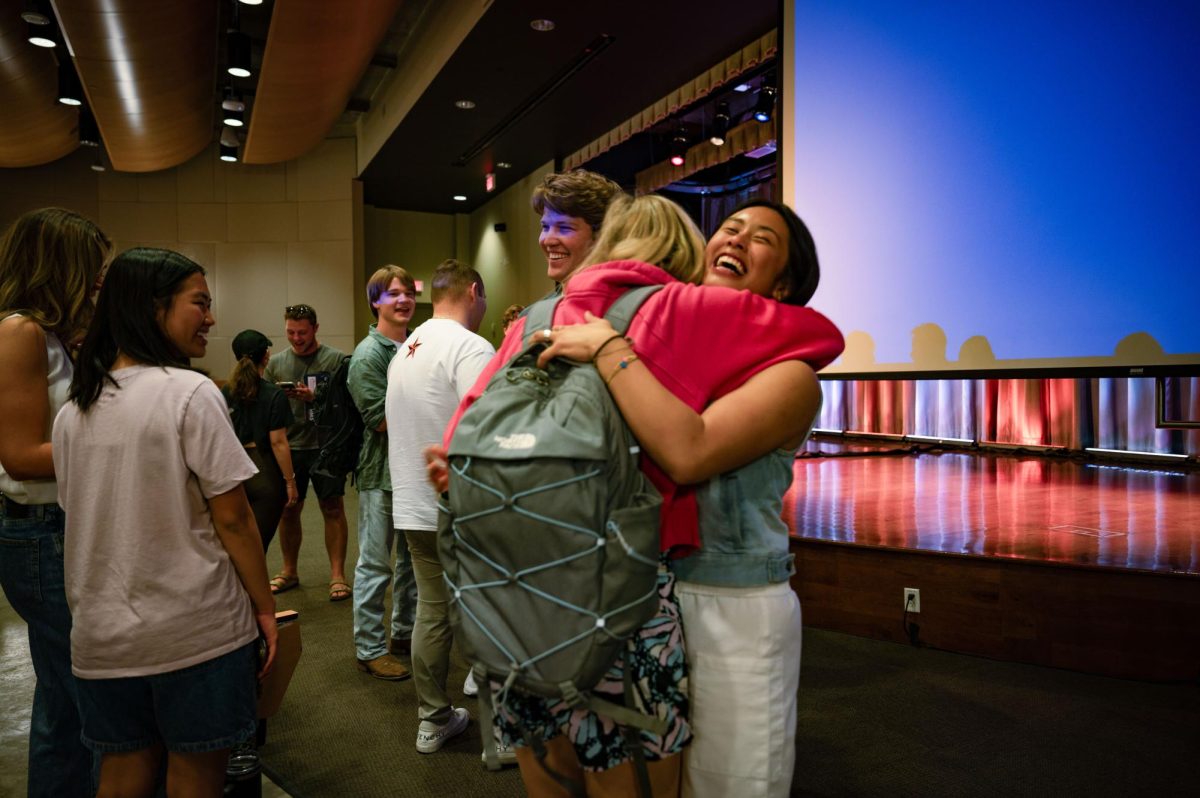A College of Liberal Arts professor challenged traditional views on lesbians in the late ’90s in a lecture Wednesday.
Lauren Gutterman, an American studies assistant professor, discussed the rise in lesbian narratives in culture. In the 1970s and 1980s, lesbian activists encouraged and pressured other lesbian women to divorce their husbands, Gutterman said in an email.
Gutterman challenged the idea that the lesbian feminist movement was solely “freeing” for these women.
“Lesbian feminism enabled many unhappily married women to recognize their attraction to women, but the movement was disciplining as well,” Gutterman said. “It erased the possibility of bisexuality, redefined lesbian identity as antithetical to marriage, and compelled women to choose between one or the other.”
During the lecture, Gutterman used many pieces of literature to support her arguments, including historical lesbian journals, magazines and scholarly sources.
“Writing functioned as a type of lesbian identity work, a process in which individuals sought to make sense of their objective sense of self,” Gutterman said.
Candice Lyons, women’s and gender studies graduate student, said the lecture focused on women’s autonomy during the 1950s.
“What struck me the most is that I think we have a very narrow idea what sexuality looks like, specifically for housewives in the ’50s, and we have this very specific image of this housewife,” Lyons said. “It was very rooted in the media at the time, having these specific political ulterior motives. Thinking about this specific agency in a way that we don’t typically think about, or sexuality in ways we don’t typically think about, is really interesting.”
Giorgia Shields, a women’s and gender studies graduate student, said she found resistance narratives of lesbian women fascinating.
“In a time like the 1950s, there was this expectation to adhere to these highly gendered spheres in public and private,” Shields said. “I think that the strategies of resistance people still manage to find [are interesting], … even in a space that we don’t normally see as offering many creative strategies as possibilities.”
Gutterman said she hopes the audience realizes lesbian feminists framed lesbianism as a political trait as well as a sexual orientation.
“Studying these women can change our understanding of both the history of homosexuality and the history of marriage in the second half of the 20th century,” Gutterman said. “Focusing on these women, I believe, forces us to pay much closer attention to the domestic sphere in gay history.”

